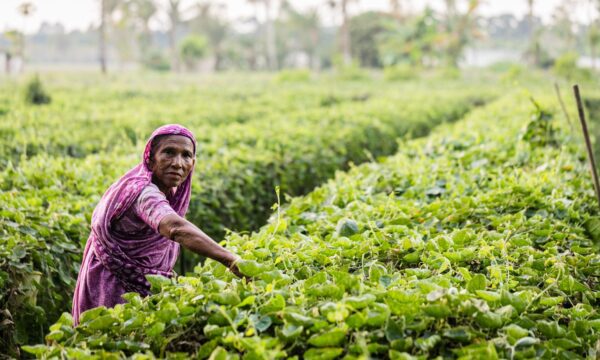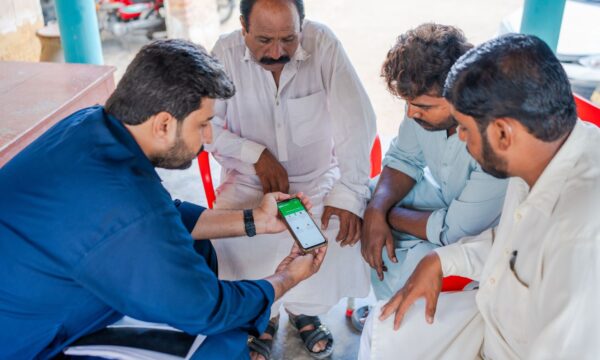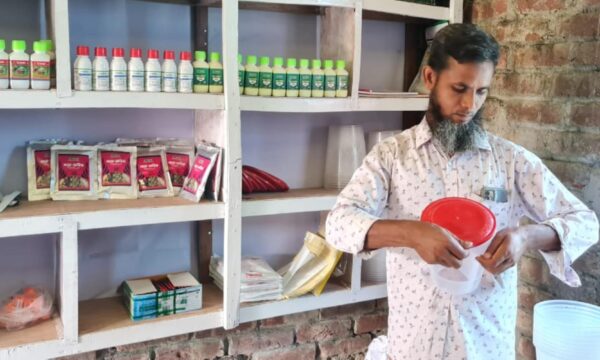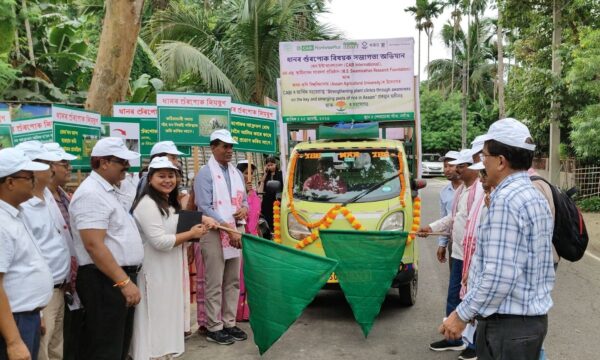When the first-ever plant clinic in Bangladesh opened in Dhaka in 2013, it initially faced a lack of interest due to its novelty and limited awareness among farmers. However, it went on to expand, providing advice to over 17,000 farmers and led to the current 383 plant clinics that are active in Bangladesh today.

Government departments like Bangladesh’s Department of Agricultural Extension, NGOs, international organizations such as CABI through its PlantwisePlus programme, academic institutions and private sector partners all play a role.
The outreach and expansion of the plant clinics in Bangladesh highlight their vital role in supporting farmers to address crop health challenges and boost agricultural productivity. They operate by plant doctors giving tailored advice to farmers who bring diseased plant samples to the clinics or describe any symptoms affecting their crops in the field. Plant doctors then diagnose the problems and offer a range of science-based management options. These range from biological control to cultural, mechanical and chemical interventions.
In spite of the success of this model in Bangladesh, there is scope to strengthen plant clinic services. More plant doctors need to be trained to upgrade their skills to cope with ever more complex plant health challenges. All of this will require investment, as well as a collaborative approach between government agricultural departments, NGOs and international development partners.
To learn more about how farmers benefit, and what method can be taken to involve younger generations in plant clinics, read a new article in Rural 21 – The International Journal for Rural Development. You can read the introduction below or visit the Rural 21 website to read the article in full.
Transforming agriculture – the plant clinic revolution in Bangladesh
This article was originally posted on Rural 21
In many countries, the notion of plant clinics has proved to be a game changer for sustainable agriculture. Taking Bangladesh’s first plant clinic as an example, our authors demonstrate how the concept works and how farmers can benefit from it.
In 2013, the first-ever plant clinic in Bangladesh was established in Shirampur Union, Dhamrai, Dhaka, marking a significant step forward for agricultural advisory services. Initially, the clinic faced limited interest due to its novelty and farmers’ lack of awareness. However, over time, it transformed into a lifeline for local farmers, revolutionising the way plant health issues were addressed. Today, the clinic is an essential resource for diagnosing plant diseases, pest management and crop improvement strategies.
The clinic holds bi-monthly sessions, often hosted at lead farmers’ homes, designated venues, or even in the fields as mobile clinics. These setups ensure direct engagement with real-time agricultural issues. Farmers attending the sessions represent a diverse group, including men, women and, occasionally, youth. Attendance averages between 10 and 15 participants, with women making up as much as 25 per cent in some sessions, while youth participation remains limited.
Read in full on Rural 21 →
1 Comment
Leave a Reply
Related News & Blogs
How can AI tools bridge the gender gap for women farmers?
AI tools have the potential to close the gender gap for women farmers. Women contribute around 40% of all agricultural labour but achieve around 23% less productivity compared to men. This is due to many constraints, from…
3 March 2026





Very encouraging to see how plant clinics have become so rooted in Bangladesh. Actually, Bangladesh was one of the first movers, starting already in 2006, and later inspired the design of Plantwise. See, for example, the paper by Kelly et al. from 2008: “Plant clinics help curb pesticides in Bangladesh”
https://www.plantwise.org/wp-content/uploads/sites/4/2019/03/Plant-clinics-help-curb-pesticide-use-in-Bangladesh.pdf